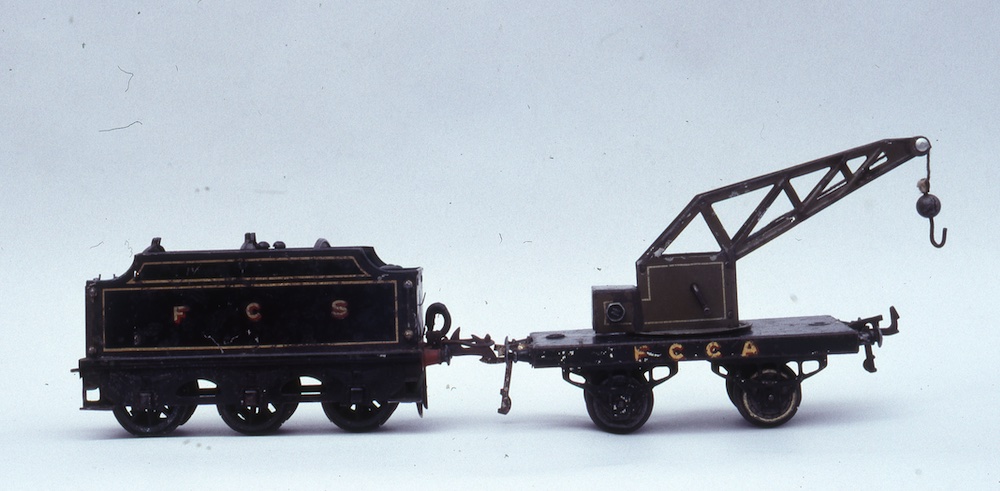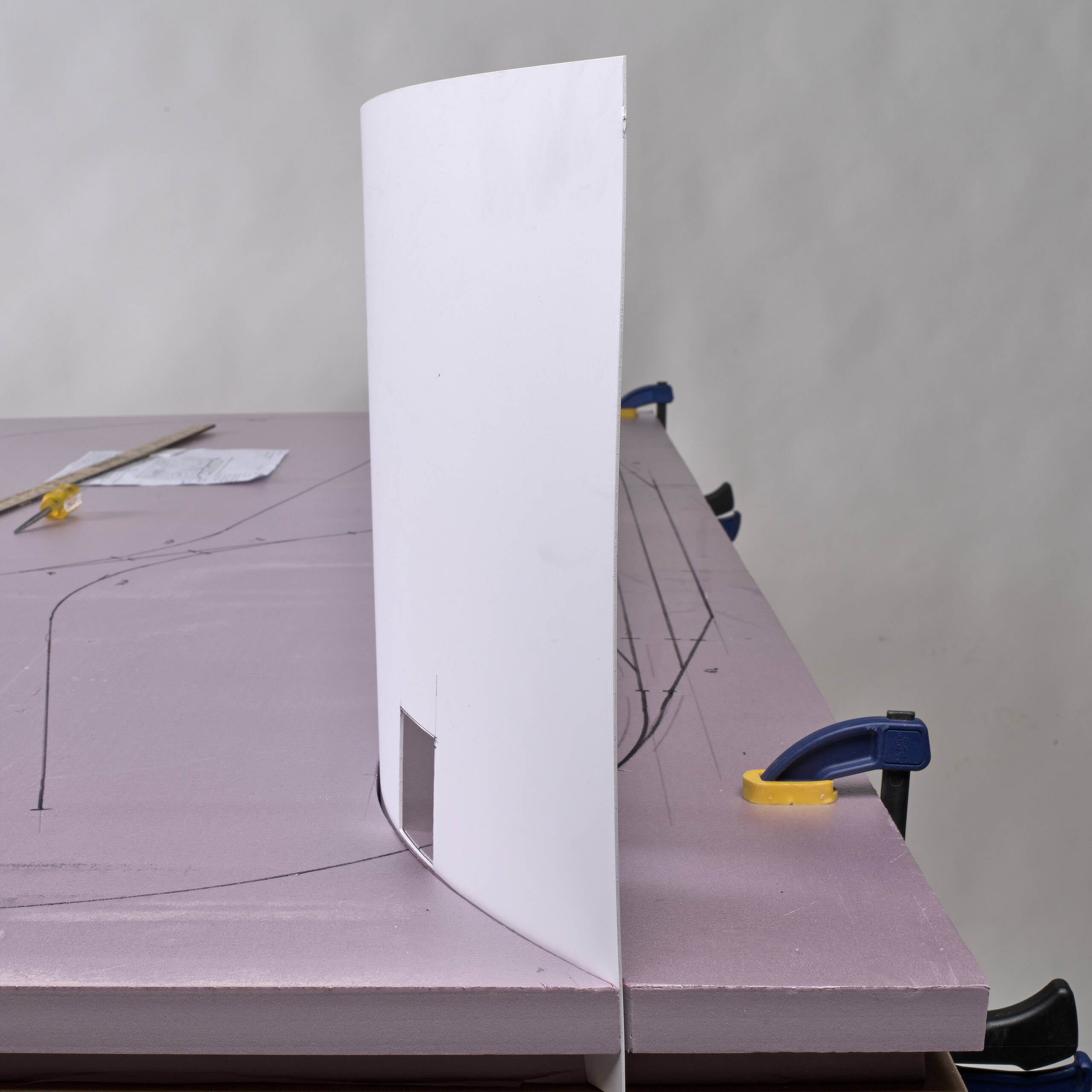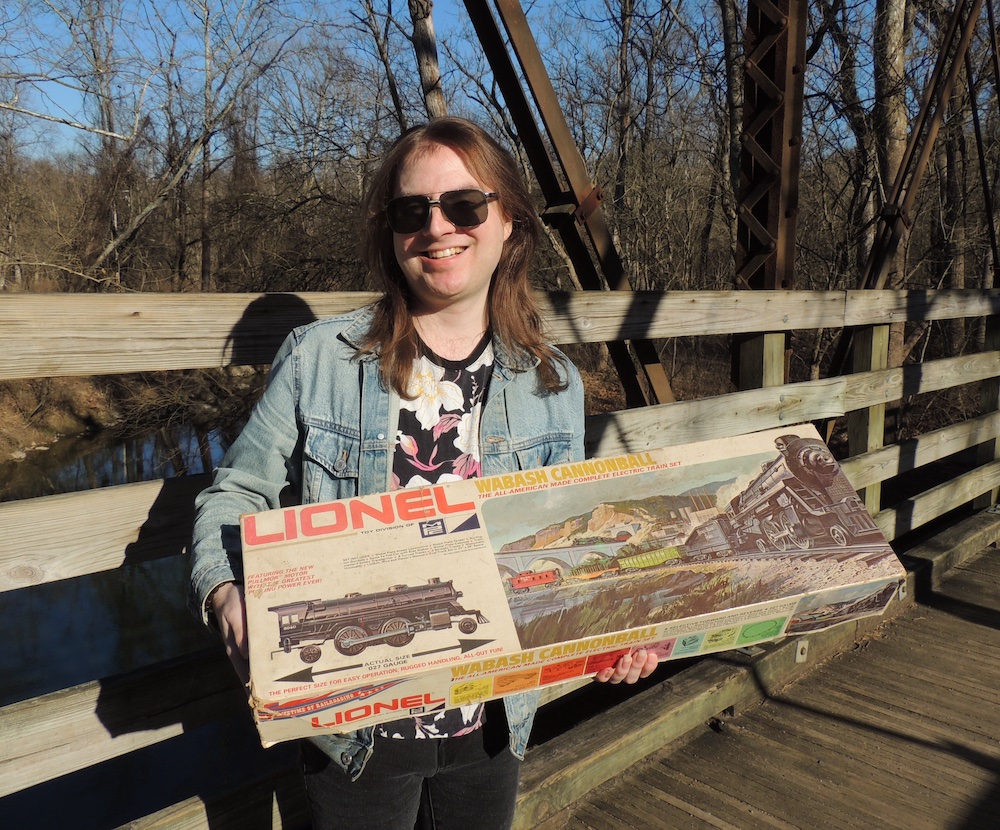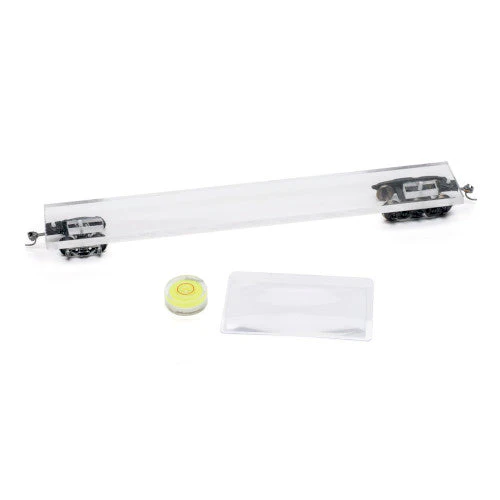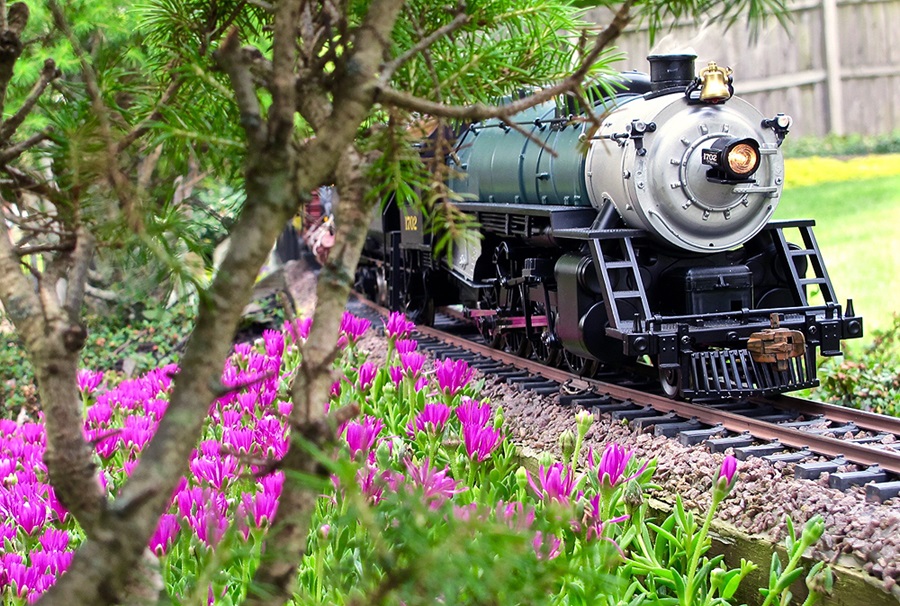
Common name: Trailing ice plant, Cooper’s ice plant
Latin name: Delosperma cooperi
USDA Hardiness Zones: 6 to 9
Cultural needs: Well-drained soil, sun or part shade
Plant size: 3-inches high by 3-feet wide
Sometimes called hardy ice plant or purple ice plant, this low succulent is not to be confused with the larger purple ice plant, popular in Southern California (Drosanthemum floribundum).
English botanist Thomas Cooper collected this plant in the mountains of South Africa, where soil rarely holds moisture. The pictured ice plant grows on a raised bed in Ohio, Zone 6, which shows its hardiness; the 1 to 2-inch purple flowers on Denny and Judy LaMusga’s Garden Northern Railway haven’t opened yet, but still shine like a fluorescent light.
Trailing ice plant is perfect on slopes, even the seaside, and hanging over waterfalls, but never in wet soil. Best in full sun, it will tolerate some shade. Flowers bloom from spring to fall.
In warmer zones, ice plant remains green, but below 5-degrees Fahrenheit, leaves drop during winter, where it needs to be treated as an herbaceous perennial.
Gardeners in Zone 5 will need to protect the plant in winter. To propagate, take softwood cuttings in spring and summer or plant seed. The Greek, delos (visible) and sperma (seed), means the seed is exposed. Where does it get its common name, ice plant? Transparent flakes appear all over the foliage. A similar hardy African ice plant has yellow blooms, Delosperma nubigenum.






